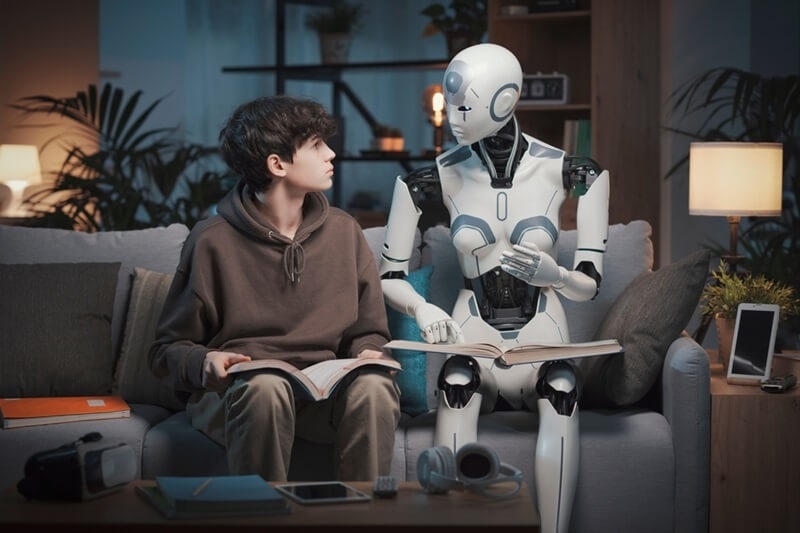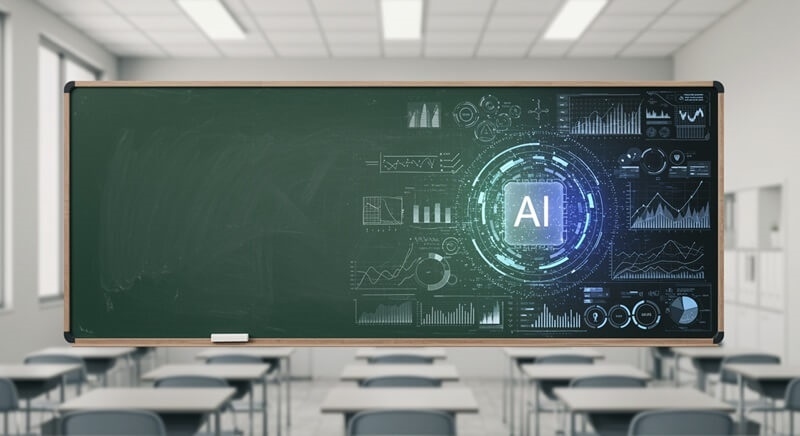
Artificial intelligence is reshaping education technology, making learning more personalized, efficient, and accessible for everyone. With AI-powered tutors, adaptive learning platforms, and smart grading systems, the way students interact with information is undergoing a major transformation, tailored to fit their unique learning styles and needs. AI helps monitor the progress of students and thus offers immediate feedback, proposes customized study plans, and even predicts upcoming hurdles. According to the predictions, AI will shift from being a mere utility to becoming a real game changer in all schools around the globe by 2025.
With virtual homework software and well-developed administrative programs, education is actively being made more teachable and accessible to learners. This is dependent on technology being skillfully advanced, with the future of education being smarter, more interactive, and personalized to allow the special needs of every student involved.
Also, read about The Role of AI Research in Shaping Technology’s Future.
Artificial intelligence is truly transforming the world of education by offering more personalized and adaptable learning experiences. With AI-powered platforms, we can analyze student performance in real-time, meaning lesson plans can be tailored to fit each student's strengths and weaknesses. Intelligent tutoring systems give instant feedback, allowing students to understand complex concepts at their own pace. Plus, AI-driven language and writing assistants are there to support learners, boosting their comprehension and communication skills.
Outside the classroom, AI makes life easier for educators by taking care of administrative tasks. Automated grading systems, intelligent scheduling tools, and virtual teaching assistants give teachers extra time to work with and engage with students rather than drowning in piles of paperwork. AI can also help pinpoint learning gaps and anticipate students’ academic achievements so that schools will be on time when there is a great urgency for extra support.
AI is moving very fast, and it is very important for the world to create a smarter and more efficient education system, not only in terms of expansion but also the fact that we take into account the individual learning style.
By delivering personalized learning experiences suited to each student’s individual needs, AI is transforming education. By using AI, recommendations are made to analyze performance and provide personalized study plans to make learning more effective. Real-time feedback provided by intelligent tutoring systems helps students learn concepts at a faster pace and helps them in problem-solving.

Artificial intelligence-based classroom assistants improve learning by automating tasks for students and teachers. Virtual teaching assistants respond to student questions in real time, enhancing interaction and accessibility. Automated grading reduces teachers' workload while giving instant, precise feedback. AI-based lesson plans also aid curriculum development, making teaching materials well-organized and tailored. All these technologies render classrooms more efficient and engaging.
Also, read about these Top Educational Gadgets for Students in 2025: Learn to Live.
Special education is undergoing a revolution by AI, which is bringing creative tools to aid students with disabilities. The speech-to-text and text-to-speech technologies are game changers for students with hearing or visual impairments as they really simplify access to lessons. This helps non-native speakers start learning the materials in a language they are familiar with. These advances facilitate a learning environment that is more inclusive and that makes education a reality for everyone. By harnessing the power of Artificial Intelligence for students, schools can level the playing field, giving every student the chance to thrive, no matter what obstacles they face.
While AI brings a lot of advantages to education, it also comes with its own set of challenges that need to be handled thoughtfully. AI bias is a big issue since if the algorithms are based on narrow or biased data, then the AI learning experiences can be unfair. The solution is for developers to use multiple datasets and build transparent AI models that promote fairness and inclusivity. Schools should conduct regular audits to identify and solve any potential biases in learning with AI-powered systems.
Moreover, privacy is a big concern since large amounts of data are gathered about students by AI-driven platforms to customize learning. For student information to be secure, it should be accompanied by robust data protection policies, encryption, and opt-in consent. Additionally, while AI does make things more efficient, it will not replace human contact but rather augment. Teachers are responsible for giving balance and making AI assist, not degrade, students’ engagement and critical thinking.
As technology keeps transforming education, teachers are tapping into AI-driven tools to make learning even better. One big trend we’re seeing is the rise of AI-powered virtual assistants that will do administrative tasks for you, like grading assignments and answering student questions. Since these tools free up time, teachers can devote more time to personalized instruction and spend more time with their students. Adaptive learning platforms also provide real-time insights into how students are doing so that teachers can use that information to customize lessons for each student’s individual needs.
One of the most thrilling trends we're noticing is the rise of immersive technologies like virtual and augmented reality in classrooms. These advanced tools are revolutionizing learning into an interactive experience, turning even the most challenging topics into a more enjoyable pursuit. Added to that, AI-driven professional development platforms are taking off, providing customized training programs that keep educators current with the newest educational practices.
Also, read about Mastering Critical Thinking Skills for Research and Exams.
AI is on the brink of transforming education in remarkable ways, with smart campuses and digital classrooms becoming everyday realities. AI-powered systems are set to improve learning environments by taking care of administrative tasks, fine-tuning schedules, and tailoring education through real-time data insights. Smart chatbots and virtual assistants will offer immediate academic help, making the learning process smoother and more accessible. And it doesn't stop at traditional schooling; AI will increasingly contribute to lifelong learning and skill development.
In a world where industries are evolving at lightning speed, AI-driven platforms are set to provide personalized courses, adaptive training, and instant feedback to help people enhance their skills throughout their careers. As we look beyond 2025, AI will transform education, making it more engaging, inclusive, and customized to meet individual needs.
The future of learning will be powered by smart systems that close knowledge gaps, encourage critical thinking, and equip learners of all ages with the resources they need to thrive in our ever-digital landscape.
AI is revolutionizing education in stunning ways by developing customized, learner-centered learning processes that cater to diverse needs. Technologies such as AI-powered tutors, computer-grading tools, and immersive tools enhance engagement and accessibility while freeing instructors from heavy loads. As AI gets more advanced, its role in shaping the modern classroom will further grow, giving rise to an entire universe of creative possibilities.
Yet, it’s essential to strike a balance between AI's efficiency and the ethical issues it raises, like data privacy and bias. When implemented responsibly, AI has the potential to close learning gaps, inspire creativity, and make education more inclusive and effective. The future of learning is upon us, and AI is at the forefront of this exciting journey.
This content was created by AI